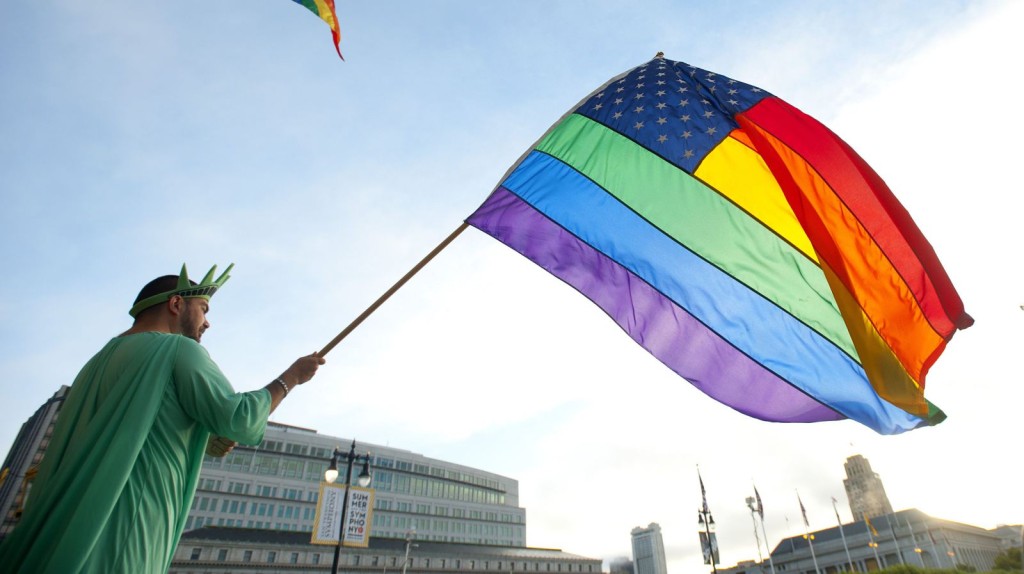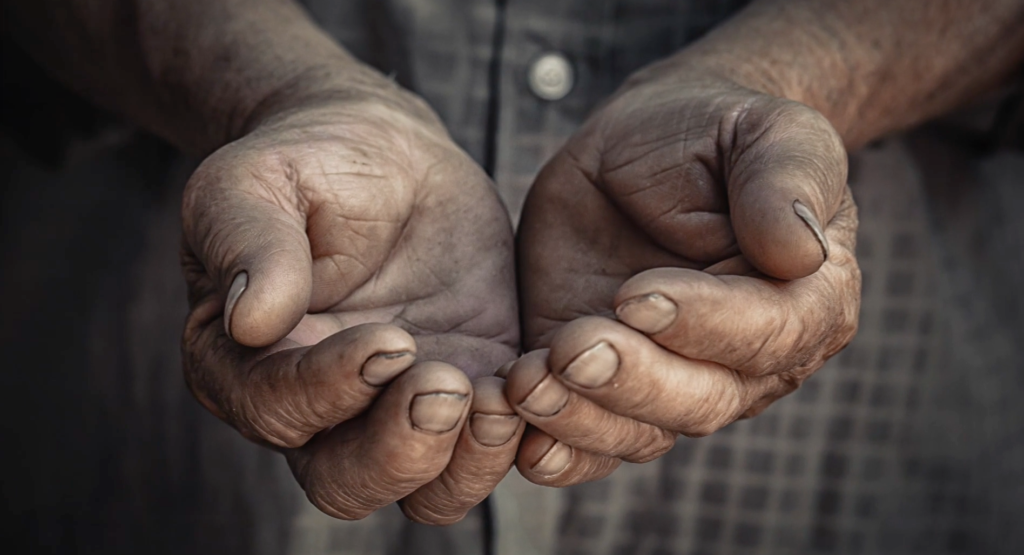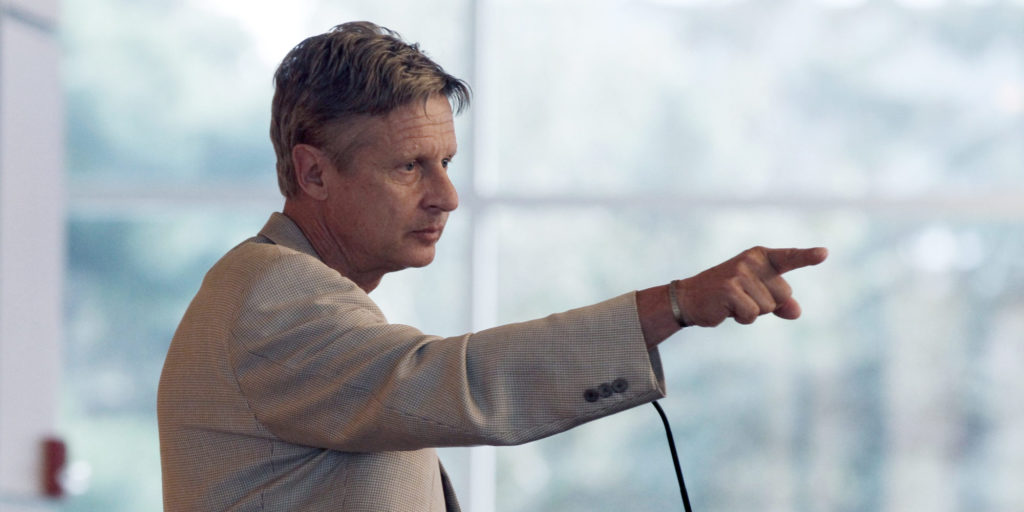Alabama Supreme Court voids earlier ruling on same-sex adoptive couples

The Alabama Supreme Court has voided its earlier decision not to recognize a lesbian couple’s adoption that was carried out in another state. The opinion announced Friday falls into line with a U.S. Supreme Court ruling issued in March that said the Alabama court erred in declaring the adoption held in Georgia invalid. One woman bore three children, and her partner adopted them – not in Alabama, but in Georgia – where they believed their chances at adoption would be better. Alabama courts got involved when the couple broke up, and the birth mother tried preventing her former partner from having regular visits with the children. The Alabama Supreme Court refused to recognize the other woman as a parent, and she appealed to the nation’s high court. Republished with permission of The Associated Press
‘Moral Revival’ social justice tour for ‘fair-minded people’ coming to Birmingham

Intro Video for the “Revival: Time for a Moral Revolution of Values” Tour from Eric Preston on Vimeo. A group of religious leaders frustrated with the tone taken by many people of faith in American politics is bringing its “Moral Revival” tour to Birmingham on Monday, June 6. The tour, whose first leg will reach 19 cities across the eastern United States, seeks to “redefine morality in American politics and challenge leaders of faith and moral courage to be more vocally opposed to harmful policies that disproportionately impact the poor, people who are ill, children, immigrants, communities of color, and religious minorities.” “This revival will advance a fusion movement where people from all walks of life see themselves connected in the struggle to support a multi-pronged agenda,” wrote Rev. Dr. William Barber, co-founder of The Revival, in a press release. “We will reframe the conversation not as left versus right, conservative versus liberal, Democrat versus Republican. Instead, we reframe it to ask if policies are morally defensible, constitutionally consistent, and economically just, when examined under the lens of our deepest moral and constitutional values.” Purporting to follow in the vision of Dr. Martin Luther King, Jr., the movement’s tenets would not be unfamiliar to supporters of self-proclaimed Democratic socialist presidential candidate and Vermont U.S. Sen. Bernie Sanders. Among the goals enumerated in the group’s “Moral Declaration” are “Pro-labor, anti-poverty, anti-racist policies that build up economic democracy through employment, living wages, the alleviation of disparate unemployment, a just transition away from fossil fuels, labor rights, affordable housing, direct cash transfers and other support for all families struggling to get by, and fair policies for immigrants; and by challenging war policies that preempt a real war on poverty that can protect and defend the sanctity of the lives of all peoples in the world.” The group’s service will be held on Monday, June 6, 6:30-8:30 p.m. at New Pilgrim Baptist Church, 708 Goldwire Pl SW. The event is sponsored locally by Greater Birmingham Ministries.
Libertarian Gary Johnson to never-Trumpers: ‘I’m it’

He has virtually no money, no strategy to compete in battleground states and no plan to stop talking about his drug use. Yet with the Republican Party facing the prospect of a Donald Trump presidency, Libertarian presidential hopeful Gary Johnson could be a factor in 2016. The former two-term New Mexico governor, a Republican businessman perhaps best known for his yearslong push to legalize marijuana, has a sobering message for a “never-Trump” movement desperately seeking a viable alternative. “I will be the only third-party candidate on the ballot in all 50 states,” Johnson says. “I’m it.” He is not their top choice, and he must first clinch the Libertarian nomination at this weekend’s national convention, but the quirky White House hopeful may be the GOP’s best, last chance to stop a New York billionaire some fear is destroying the soul of their party. The Trump haters have struggled to convince other third-party prospects to join the presidential contest. They’ve courted the likes of 2012 GOP nominee Mitt Romney, Oklahoma Sen. Tom Coburn, Nebraska Sen. Ben Sasse and retired Marine Corps General James Mattis to no avail. And with ballot access deadlines already starting to pass, some say Johnson is beginning to look like the most legitimate alternative, even if he earned just 1 percent of the national vote in the last presidential contest. He strengthened his position this week by adding running mate William Weld, a well-respected former Massachusetts governor who raised tens of thousands of dollars for Romney’s presidential runs. They represent one of the strongest Libertarian tickets in memory, although would-be supporters are not yet sold. “To be clear, the reports of the death of the non-Libertarian third-party effort are greatly exaggerated. I understand there are still plenty of irons in the fire,” said conservative columnist Quin Hillyer, who has vowed not to support Trump this fall. “Never Trump means never Trump,” Hillyer added. “At the very least it’ll be Gary Johnson on the Libertarian ticket.” Johnson’s long-shot campaign is based in Salt Lake City, home to his most trusted political adviser and in a state where Trump finished a distant third place in March’s Republican primary election. The local presence of Johnson’s headquarters was a surprise to many Utah state legislators who met with the Libertarian candidate inside the state house last week. A handful of lawmakers in both parties were receptive. “Utah understands how dangerous Trump is,” said Howard Stephenson, a Republican state senator who had warm words for Johnson. “We’re looking for someone to vote for.” Johnson’s political strategy is simple. With just $35,000 in his campaign coffers at the end of March, he doesn’t have the money for TV ads, poll-tested messaging, or a paid presence in battleground states where Trump and likely Democratic nominee Hillary Clinton are already beginning to invest resources. Johnson is instead relying on an intensifying schedule of media appearances to boost his name recognition in an effort to reach the necessary 15 percent threshold to qualify for the presidential debates this fall. “We cannot go into a battleground state and compete,” said Johnson’s senior strategist Ron Nielson, citing the high cost of running a campaign in states like Florida or Ohio. The Johnson campaign will instead focus its resources on cheaper states where libertarians have done well in the past, places like Alaska, maybe New Hampshire, he says. Yet Trump’s Republican critics don’t necessarily need to find a candidate who can win. Many are seeking a legitimate protest candidate where they could focus their anti-Trump energy. Should that candidate earn even a few percentage points in key states this fall, it could hurt Trump’s chances. “Gary will be an outlet for millions of Americans who just can’t fathom the idea of voting for Hillary Clinton or Donald Trump,” said Ed Crane, who co-founded the libertarian-leaning Cato Institute and now runs a super PAC he says may support Johnson “down the road.” It’s no guarantee, however, that Johnson will earn the Libertarian presidential nomination. He must first beat back aggressive challenges at the party’s national convention in Orlando this weekend. Software entrepreneur John McAfee and Libertarian activist Austin Petersen are also seeking the nomination. Johnson represents a set of policies that do not line up perfectly with Republicans or Libertarians. He embraces fiscal conservatism, but not to the lengths that some hard-line anti-government libertarians would like. He considers himself a liberal on social issues, supporting same-sex marriage and abortion rights. And he supports a non-interventionalist foreign policy that focuses on America’s challenges at home. Many know him best for his repeated calls to legalize drugs. Johnson largely focuses his energy on marijuana, but also suggests that concern over narcotics such as heroin are exaggerated compared to the impact of alcohol or even smoking cigarettes. He is a regular marijuana user, noting that he most recently took an edible form of the drug three weeks ago. “I’m one of the 100 million Americans that do this. If that disqualifies me from being president, so be it,” he told The Associated Press, adding that he recently purchased the drug legally in Colorado but illegally transported it back to his home in New Mexico. “Sure, I’m in the tens of thousands of those that are guilty of that phenomenon,” he says. He promises not to consume marijuana if elected president, however. “I think the American people deserve to know that there will be a steady hand,” he said. “And I would hope that my history regarding this stuff would bear out the fact that I’m a pretty disciplined cat.” Republished with permission of The Associated Press.


